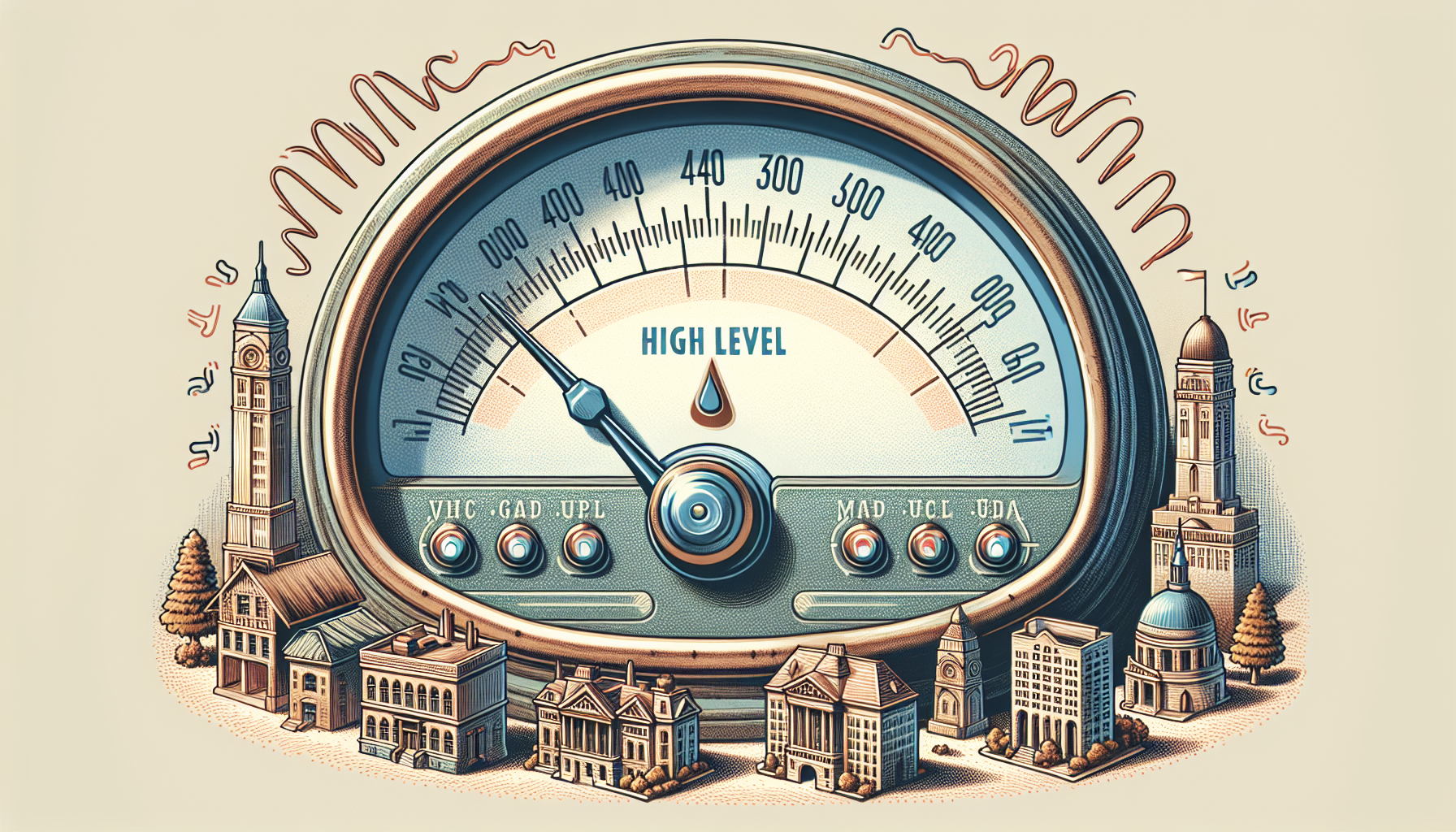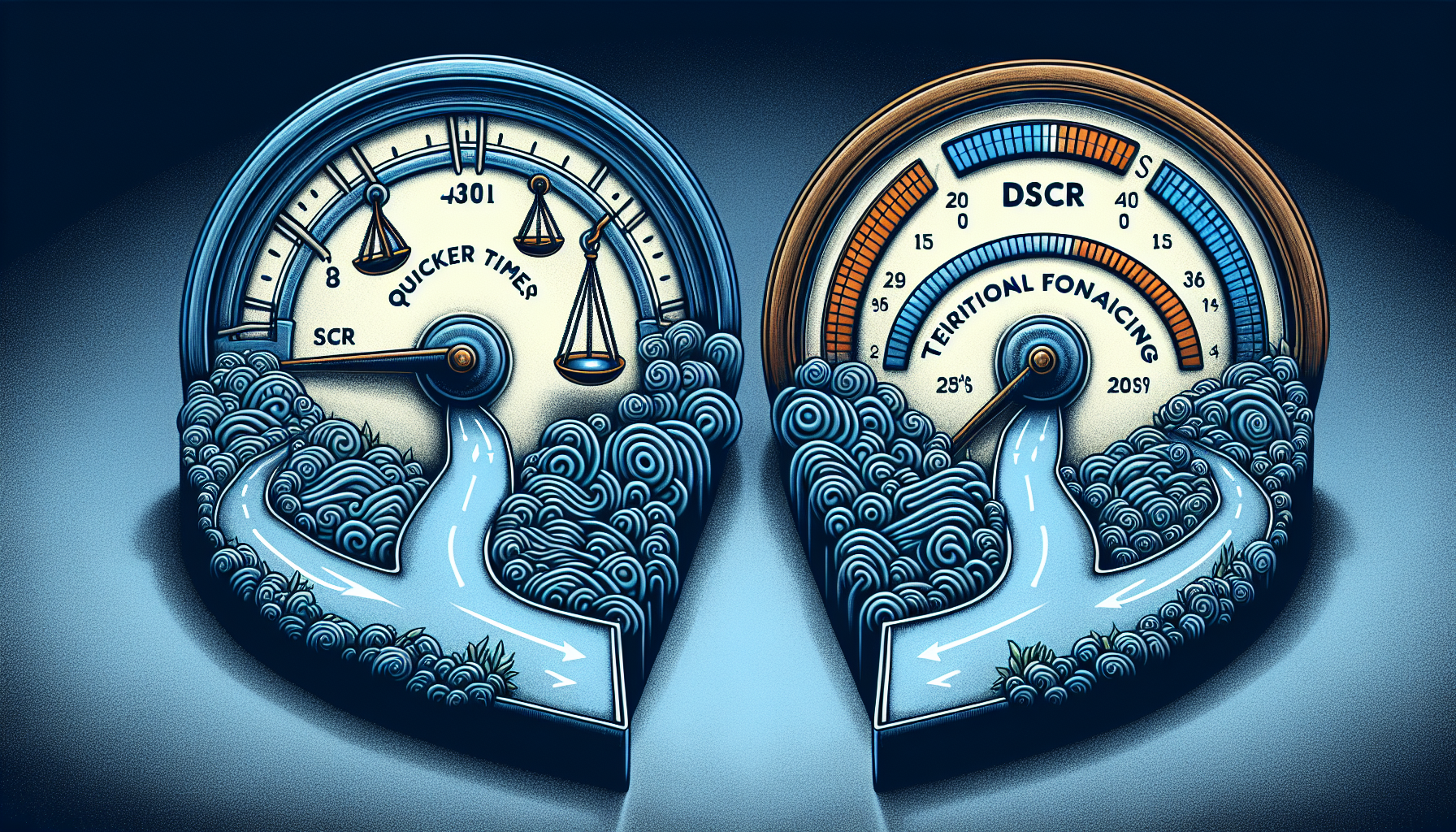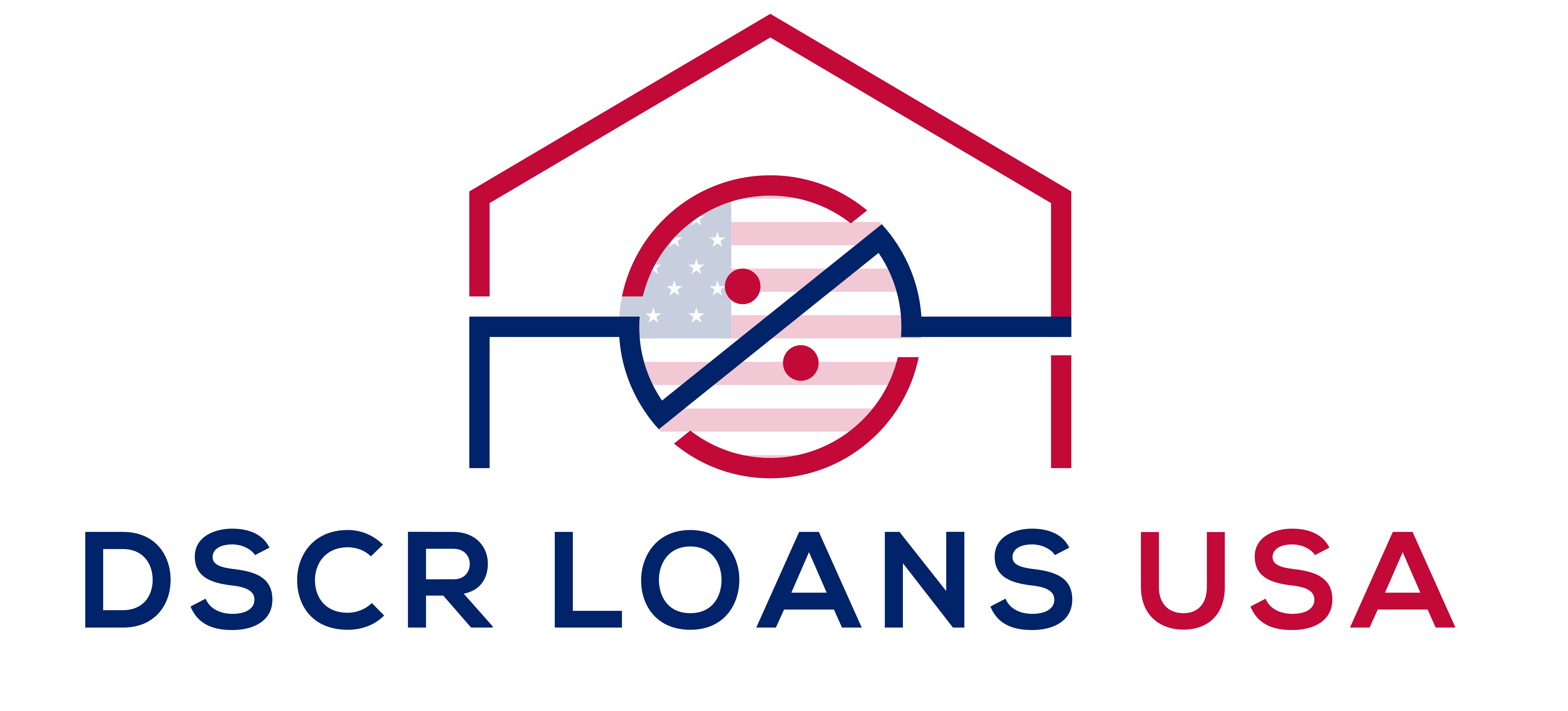Getting a DSCR loan in Indiana is straightforward with the right information.
This article directly guides you through the necessary steps on how to get a dscr loan Indiana, from comprehending the DSCR fundamentals to sealing the deal. Expect to find a focused rundown, avoiding fluff and removing unnecessary complexity.
Key Takeaways
- DSCR loans in Indiana cater to real estate investors by focusing on a property’s income generation instead of the borrower’s personal income, requiring a minimum DSCR score of 1.20 and bypassing traditional income verification.
- Investors looking to qualify for a DSCR loan must thoroughly evaluate their rental income, understand varying lender requirements, and maintain adequate liquidity and creditworthiness, with a minimum credit score of 680 and no recent bankruptcy.
- When choosing the best DSCR lender, consider factors such as interest rates, loan terms, credibility, and customer service, and be prepared for different aspects of the application process, including appraisals and closing costs.
Understanding DSCR and Its Importance in Indiana Real Estate

The Debt Service Coverage Ratio (DSCR) is a powerful tool used by real estate investors to determine a property’s ability to generate enough income to cover its debt obligations. In simple terms, a DSCR greater than 1 indicates a property’s income exceeds its annual debt, making it a potentially profitable investment. This is why DSCR loans in Indiana have become a go-to choice for investors, as they are based on the cash flow and rental income from investment properties.
DSCR loans in Indiana offer unique advantages over traditional loans, thanks to the expertise of dscr lenders. They bypass conventional income verification processes, reducing the time and complexity typically associated with loan approvals. On top of that, most lending companies in Indiana expect a DSCR score of at least 1.20, making these Indiana DSCR loans accessible to a broad range of investors. With an Indiana DSCR loan, you can experience these benefits firsthand.
Calculating DSCR involves dividing a property’s monthly projected income by the total monthly debt payment, which includes principal, interest, taxes, insurance, and association fees (PITIA). However, unlike underwriting other types of loans, DSCR calculation does not take other expenses into account. This makes DSCR loans particularly suitable for investors with a strong understanding of their property’s income potential.
Key Steps to Qualify for a DSCR Loan in Indiana
The process to secure a DSCR loan in Indiana is streamlined, devoid of traditional income verification and tax return requirements. This makes it a faster, more efficient alternative to conventional and bank loans. However, for qualifying a DSCR loan, keep in mind that different lenders maintain varying DSCR requirements, impacting the structure of their financing significantly.
Investors can influence the loan amount and terms they secure by aligning their property offers with specific DSCR thresholds. For instance, a property with a higher DSCR is likely to attract more favorable loan terms. Therefore, it’s imperative for investors to accurately calculate and present their property’s DSCR to prospective lenders.
While DSCR loans in Indiana provide several benefits, they also necessitate a comprehensive understanding of the lending landscape. By conducting due diligence, familiarizing yourself with various lenders’ DSCR requirements, and adjusting your property offers accordingly, you can traverse the complexities of DSCR loans and secure financing that best suits your investment needs.
Evaluating Your Rental Income: The Path to a DSCR Loan

To secure a DSCR loan in Indiana, a meticulous evaluation of your rental income is required. The potential income and estimated expenses of a rental property are scrutinized to calculate the debt-service coverage ratio. This begins with determining the property’s net operating income (NOI), which is calculated from the monthly rental income.
To obtain an accurate NOI, all necessary operating expenses must be deducted from the gross operating income. However, it’s important to note that capital expenditures, depreciation, and mortgage payments are not included in operating expenses when calculating NOI, as these factors can vary among investors.
Finally, the Debt Service Coverage Ratio (DSCR) is derived by dividing the net operating income (NOI) of a property by the property’s annual mortgage debt service. This figure is used by lenders to evaluate whether the rental property’s cash flow is sufficient to cover debt payments, ultimately influencing your eligibility for a DSCR loan.
Navigating DSCR Loan Requirements in Indiana
Meeting certain criteria is involved when navigating DSCR loan requirements in Indiana, including the maximum loan amount. Here are the key requirements:
- Minimum credit score of at least 680
- Sufficient liquidity to cover the down payment, closing costs, and 9 months of mortgage payments
- No bankruptcy declared in the last 7 years
If you don’t meet these requirements, you may be ineligible for a DSCR loan.
Another crucial step in the DSCR loan process is the early eligibility checks, which include a credit report and background check. These checks help lenders assess your financial stability and creditworthiness, thereby influencing your loan approval.
Additionally, securing a DSCR loan for rural properties can be challenging due to stringent investor guidelines driven by lower liquidity and demand in Indiana’s rural rental markets. However, despite these potential hurdles, DSCR loans, rental loans, and rental property loans remain viable financing options for many investors, thanks to their focus on property income rather than personal income.
Comparing DSCR Loans with Traditional Financing Options

While numerous advantages for real estate investors are offered by DSCR loans, understanding their comparison with traditional financing options is vital. Unlike conventional loans, which consider the borrower’s personal financial situation, DSCR loans focus on the property’s cash flow to determine eligibility. This focus allows for quicker processing times and potentially lower down payments, making DSCR loans a strategic advantage in Indiana’s fast-moving property market.
Conventional loans, on the other hand, are not federally insured and require a stable income and creditworthiness. They typically also require a down payment from the borrower. For borrowers with excellent credit, conventional loans can offer lower interest rates and can be used for various property types. However, they come with more stringent requirements, such as higher credit scores and larger down payments, compared to DSCR loans.
In essence, the choice between DSCR and conventional loans should align with your investment strategy and financial status. Each loan type has distinct underwriting guidelines and benefits, and understanding these differences can help you make an informed decision.
How to Find the Best DSCR Lender in Indiana
Finding the best DSCR lender in Indiana involves more than just securing a loan; it’s about identifying a financial partner who comprehends your investment aspirations. One way to find the best DSCR lender is by comparing interest rates. For instance, OfferMarket offers DSCR loans in Indiana with interest rates ranging from 7.5% to 8.25%, which are influenced by loan-to-value ratios and property types.
It’s also crucial to take into account other loan terms, aside from interest rates. OfferMarket, for example, provides competitive terms for DSCR loans, such as lower interest rates, higher LTV, and faster processing times compared to competitors. They also offer an appraisal price and availability request service to achieve competitive bids, saving money and accelerating the appraisal process.
It’s also worth noting that private lenders in Indiana, like those offering DSCR loans, are not required to have an NMLS license since these loans are intended for business purposes. Therefore, when choosing a DSCR lender, consider their credibility, loan terms, and customer service, in addition to their licensing status.
The Appraisal Process for DSCR Loans in Indiana
You can expedite the appraisal process for DSCR loans in Indiana and potentially save money by:
- Collaborating directly with an approved appraiser
- Using a lender’s preferred appraisal service
- Taking advantage of free or discounted appraisals offered by some DSCR loan providers
- Bypassing traditional appraisal management companies
The condition of the property being appraised is also critical for DSCR loans in Indiana, with ratings of C2, C3, or C4 being requisite for loan approval. An appraisal review or a collateral desktop analysis might be used to confirm the appraisal value and methodology, ensuring the accuracy of the report, which is a vital component of the DSCR loan process.
In essence, a well-conducted appraisal process can significantly influence your DSCR loan terms. By working closely with your lender and their preferred appraisers, you can ensure a fair and accurate valuation of your property, helping you secure the best possible loan terms.
Closing Costs and Fees Associated with DSCR Loans
For DSCR loans, closing costs in loan documents are often initially inflated, prepping borrowers for the highest possible costs. Usually, final charges are lower. In Indiana, typical origination fees for DSCR loans are around 1%, which is more favorable compared to the 2% to 3% that other lenders might charge.
DSCR loans also have the advantage of not including ‘junk fees’, avoiding the extra costs that can accumulate with various additional charges from other lenders. However, title insurance is a mandatory cost for DSCR loans in Indiana, ensuring the lender’s protection against potential liens or ownership disputes.
The total costs for lender-gathered documents for DSCR loans usually do not exceed $2,000, often representing less than 1% of the loan amount. Being aware of these costs can help you budget accurately and ensure a smooth closing process.
Overcoming Common Challenges When Applying for DSCR Loans
Applying for a DSCR loan in Indiana comes with its own set of challenges. However, these can be overcome with careful planning and preparation. For instance, first-time investors and those lacking experience in property management are not automatically disqualified from obtaining a DSCR loan. Applicants must pass a background check, with an emphasis on a felony-free record.
One of the main challenges for rental property investors is the careful consideration of a rental property’s Net Operating Income (NOI) for an investment property. Factors such as potential rent fluctuations and vacancies must be taken into account when calculating NOI for DSCR loans. Additionally, the underwriting process may pose challenges for rental properties with non-traditional income streams or where market data for forecasting NOI is lacking.
Ultimately, during an economic downturn, lenders may emphasize the DSCR figure more and decrease the size of commercial real estate loans. By understanding these potential challenges and planning for them, you can better position yourself to secure a DSCR loan.
Finalizing Your DSCR Loan: The Closing Process
A series of steps are involved in finalizing your DSCR loan in Indiana. Firstly, gather all necessary documents, including a government-issued ID, proof of insurance, the loan agreement, and any additional paperwork required by the lender. Having these documents ready can significantly expedite the closing process.
During the closing meeting, you will review the terms of the loan agreement, sign the loan documents, and address any last-minute questions or concerns. The lender’s closing agent will oversee this process, ensuring all documents are correctly signed and that the terms of the loan are adhered to.
Upon finalizing the loan agreement and signing all documents, you will receive the property’s deed, and the loan funds will be transferred as agreed. Being well-prepared with documentation and a clear understanding of the process can lead to a quicker and smoother transaction at closing.
Summary
In conclusion, DSCR loans offer a unique and beneficial financing option for real estate investors in Indiana. By focusing on property cash flow rather than personal income, these loans provide a flexible and efficient way to secure funding. However, like any financial decision, it’s essential to understand the process, requirements, and potential challenges associated with DSCR loans. By doing so, you can navigate the Indiana real estate market with confidence and secure the best possible terms for your investment.
Frequently Asked Questions
What is a DSCR loan?
A DSCR loan, also known as a Debt Service Coverage Ratio loan, evaluates a property’s income-generating capacity to ensure it can cover its debt obligations.
How is the DSCR calculated?
The DSCR is calculated by dividing a property’s net operating income (NOI) by the property’s annual mortgage debt service. This provides a measure of a property’s ability to cover its debt obligations.
What are the requirements for a DSCR loan in Indiana?
To qualify for a DSCR loan in Indiana, you need a credit score of at least 680 and enough liquidity to cover down payment, closing costs, and 9 months of mortgage payments.
How do DSCR loans compare to traditional financing options?
DSCR loans offer faster processing and lower down payments, making them advantageous for real estate investors, but they may have higher interest rates for borrowers with excellent credit.They also enable you to finance multiple properties even if your personal DTI wouldn’t allow you to qualify with other loan types.
What are the common challenges when applying for DSCR loans?
When applying for DSCR loans, common challenges include accurately calculating the property’s NOI, addressing non-traditional income streams, and preparing for potential economic downturns. These factors can impact the lending decision significantly.
Ready for More Great Tips and Information? Join Our Email List Today!


Leave a Reply